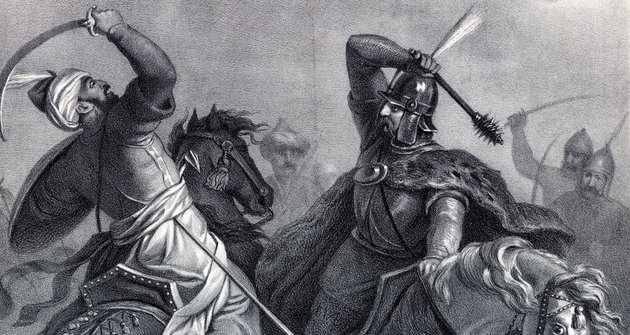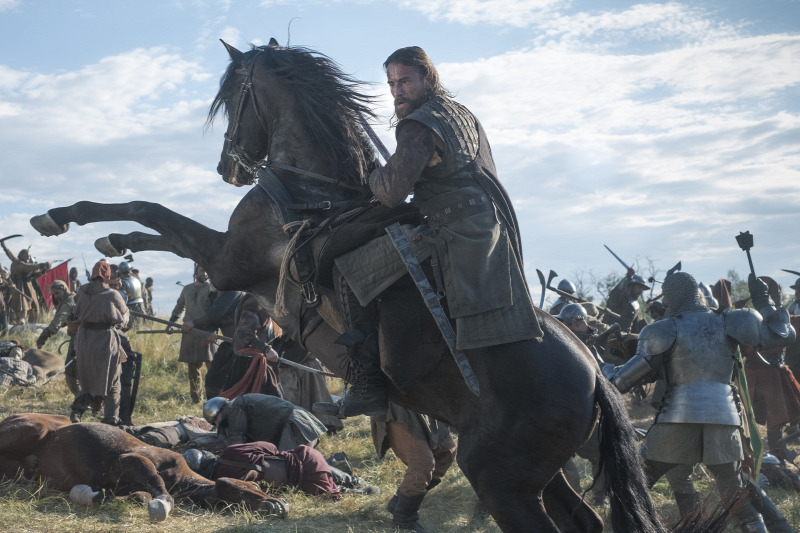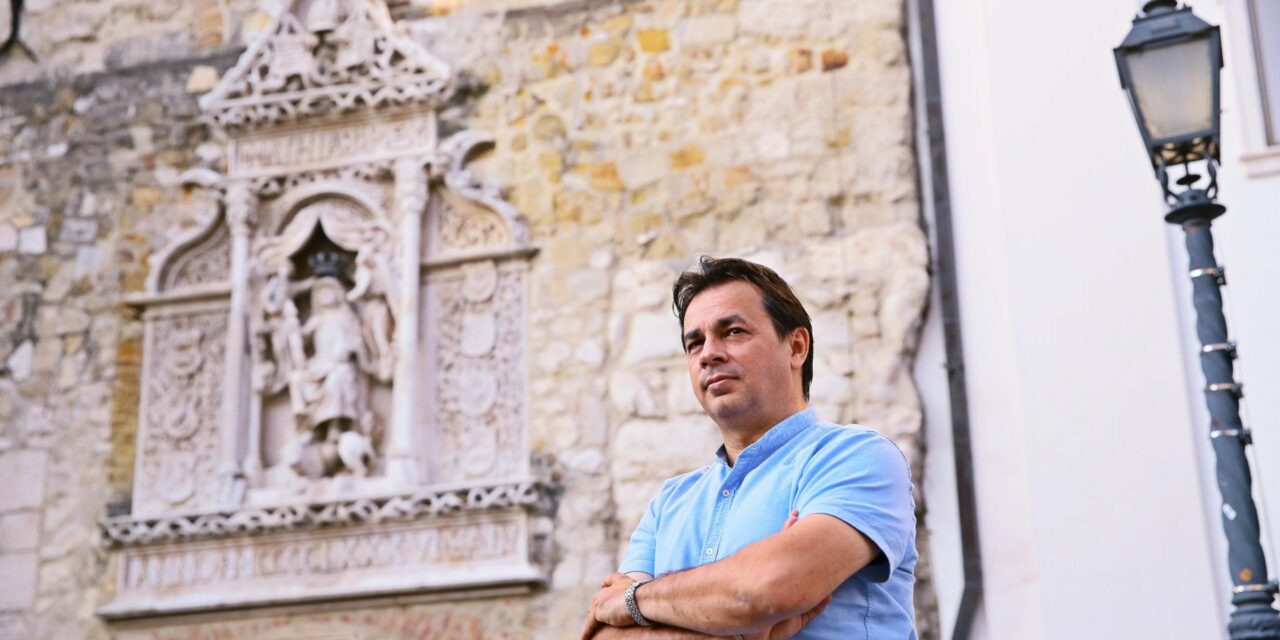Filming of the ten-part television series about Hunyadi has recently begun. The series is based on Mór Bán's monumental series of novels, more or less faithfully following its events. The writer participates in the adaptation as an expert, consultant and co-writer. Magyar Nemzet conducted an interview with the writer, and we will take a look at it.
János Bán: We would like a spectacular, enjoyable and exciting adventure story to be created. We strive to bring Hunyadi's life to life for the viewer in a way that can be experienced. There is a huge need for Hungarian viewers to finally get a series that shows our own national history, including a part of it that, surprisingly, neither cinema nor TV films have been made so far. We can finally watch a series that is not about the Turks, not the English, Italians, or Americans, but our story. We have to tell this story. On the one hand, we can be very proud of it, and on the other hand, it is a fascinating, epic story in itself, I believe that it will hold its own in every part of the world. The novel series proved that Hungarian historical novels have a right to exist. I am confident that the film series will also provide this kind of impetus, plus inspiration in the field of TV series.

János Hunyadi in the battle of Várna (lithograph by József Marastoni)
M.N. _ Many of us think that, despite one or two refreshing exceptions, very few historical films are made. I wonder why?
In preparation for the Hunyadi series, I delved deeply into the subject and asked myself quite a few times: how could it happen that the Hungarian film industry was unable to make a serious film about Szent István, Hunyadi, Mátyás for decades? It seems that the vast majority of Hungarian filmmakers were not interested in these periods of Hungarian history, nor were they interested in these characters. Only rarely did they feel the need to work on topics that bring to life the uplifting, glorious, successful moments of Hungarianness. Of course, not many films have been made about such a tragic historical turning point as Trianon.
In the meantime, millions of Hungarian viewers could watch the Sülejmán series and support the Sultan in the Battle of Mohács. And if we only see these, and there is no version of us next to it, how will we see ourselves?
As for us: Eighty Hussars is an excellent film. I really like. But think about it, the beautiful work of Sándor Sára was inspired by the story of the Lenkey hussars, whom Kossuth calls home from across the border. It's a fact, not fiction. Yes, but in reality the Lenkey hussars fought their way through fire and water and joined the army of the freedom struggle. In the Eighty Hussars, on the other hand, they fail tragically. Of course, we all know that the freedom struggle ultimately failed. But the story of the Lenkey hussars is still a beautiful, heroic and triumphant story. They did not fail in reality. I would have liked to have watched a film in which ours were successful. Especially if they succeeded in reality: the Lenkey hussars returned home victorious. Of course, I understand that the Sáras wanted to say something about fifty-six, about the defeat of the war of independence, but it was impossible to tell the truth about 56 at that time. Thus, it became a very heroic, but overall depressing cinema, we could feel that we, Hungarians, can't do anything, that we are losers... Again, this makes Eighty Hussars a beautiful film, my comment refers to the era; this film was made in an era where very few motion pictures could be made about Hungarian triumphs. Zoltán Várkonyi is an unavoidable figure in Hungarian film production, his historical films were seen by almost 10 million Hungarians in cinemas in the 1960s. Literally - you can look at the stats. To this day, we screen his films on the occasion of every national holiday, but we have to face the fact that a cinema made half a century ago can no longer appeal to the youth of today in the way it addressed us in our childhood.
MN Will the new Hunyadi series be able to appeal to today's viewers who are used to hyperactive activity?
On the one hand, our story is the story of a soldier, with battles, campaigns, and heroic standing, and on the other hand, an amazingly exciting family drama, which is interwoven with the political scheming, power struggles, intrigues of the era, and finally, a fascinating career story. Not just any kind. János Hunyadi rises from nothing with a sword to the heights of power. And before his death, he wins a huge, world-famous victory, with which he ensures the possibility of freedom for generations. In short, a fascinating story, a real epic.

Source: The Orbital Strangers Project
Filming has been going on for a few weeks now. I also went out for the first scene. I have to say, it's a fascinating feeling for a writer when he sees hundreds of people, actors, extras bring the book he wrote to life. In the strictest sense of the word, the pages of the novel come alive. It was a heartwarming feeling. Moreover, I recognized one or two of my readers among the extras. They waved: we are here, we are going to Hunyadi's camp...
MN It can be really uplifting!
Inspiring. But I'm still a novelist. I would like to create the broadest literary imprint of this era. I am writing a series about the Black Army, weaving real events into the adventure story. I started a historical crime story in which Master Bonfini investigates the connections behind the strange intrigues of the era. The first volume of the youth novel Hollófiak, which tells the adventures of the child Mátyás and the adolescent László, will soon be published. All these stories form a coherent system, there will be characters who appear here and there, there will be characters who will appear in other novels, of course depicting this exciting era from different angles. It is a real writer's challenge to show the diversity of 15th century Hungary. But in order not to be accused of being obsessed with the late Middle Ages, I also started compiling a collection of sayings. In the volume entitled Ezer rege, I would like to compile the Hungarian-Hungarian proverbs from ancient Scythian times to the conquest of the country up to Mátyás, even to the 1948 War of Independence... The twist is that I want to weave in stories that we do not know. It will also include Samoyed, Scythian, Mongolian, and Eastern Hun myths. According to the frame story, the last living shaman tells the story of the Hungarians and our relatives. A story comes to life, some parts of which we know, but others we don't. According to my hopes, a story of many millennia will emerge, which is not impressive, but downright creepy. Just like the Hunyadi story.
Source and full interview: Magyar Nemzet
Featured image: Máté Bach













